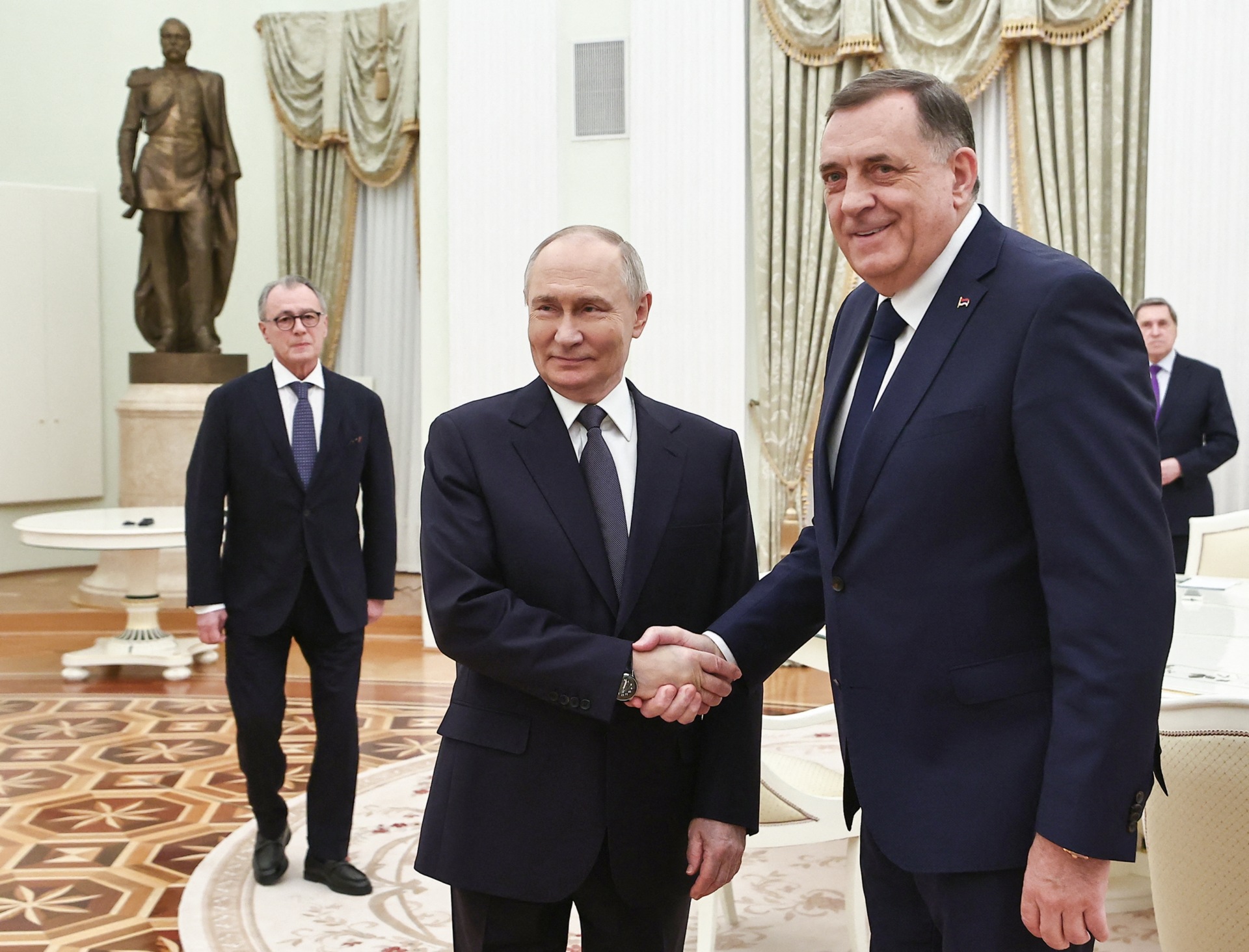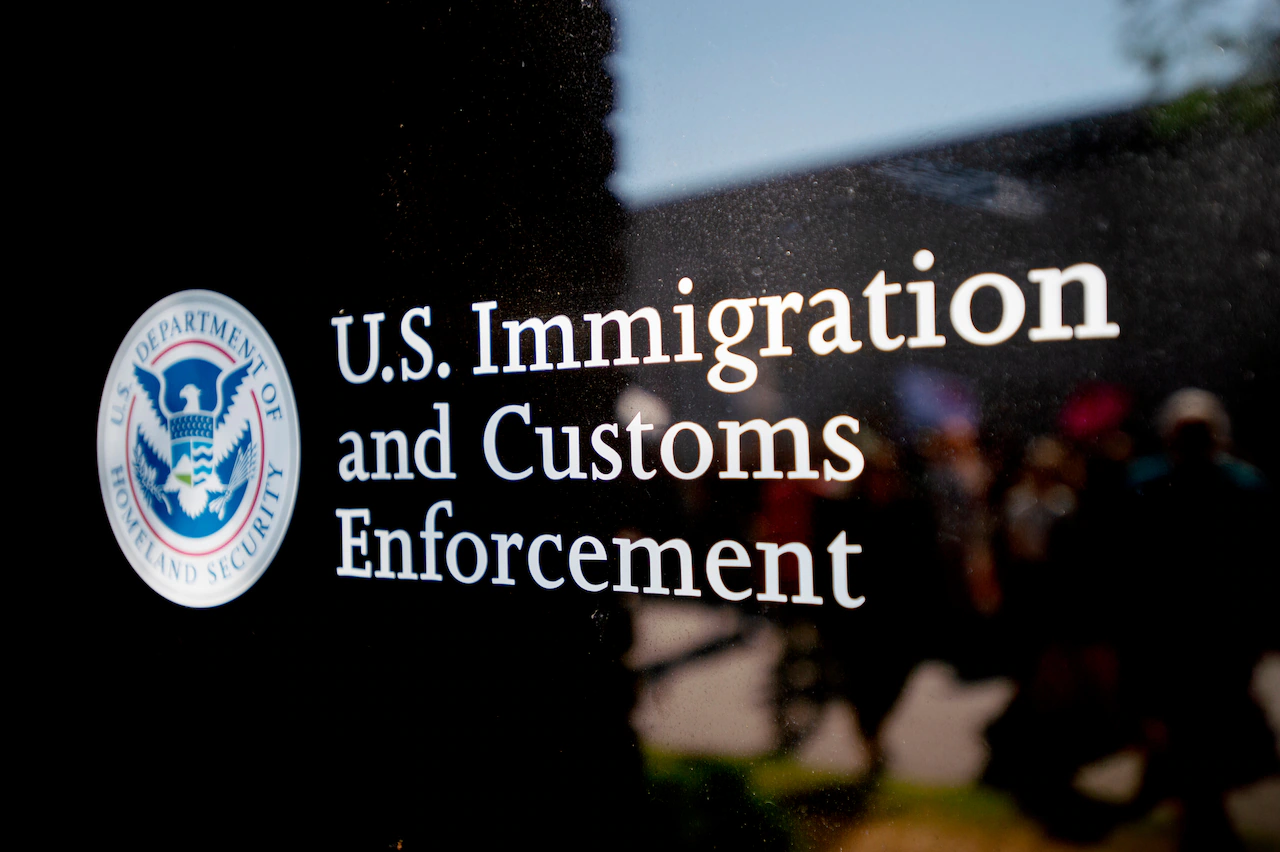Copyright Just Security

The Trump administration announced yesterday that it was lifting sanctions on convicted former Bosnian Serb President Milorad Dodik and associated individuals and businesses, penalties the United States had imposed over corruption and their decades-long record of violating and agitating against the U.S.-brokered 1995 Dayton Peace Accords that ended the war in Bosnia and Herzegovina (BiH). The removal of sanctions, including for members of his family and his political party — the current Serb member of the Bosnia and Herzegovina tripartite State Presidency, Zeljka Cvijanovic, is among the latter — follows a similar move on Oct. 17 favoring four other Dodik-linked individuals. Considering the timing and combined with other moves, it may signal a major shift in U.S. policy on Bosnia and the Western Balkans region and appears to reflect assertive pressure by U.S.-based lobbyists, including Trump-pardoned Illinois Governor Rod Blagojevich. The lifting of U.S. sanctions, some of which go back almost a decade and which constituted by far the lion’s share of international legal sanctions on Dodik and his circle, comes just before a long-scheduled U.N. Security Council session on Bosnia and Herzegovina tomorrow. The session will be chaired by Dodik ally Russia and likely will discuss the extension of the European Union’s peace enforcement force, EUFOR Operation Althea, the mandate for which expires on Nov. 2. Russian President Vladimir Putin has long supported Dodik; the two meet often and did so again in Sochi, a Russian resort on the Black Sea, on Oct. 2. Both also have objected for years to the continued presence in Bosnia of the international High Representative, an office established to oversee implementation of the peace agreement. The office has had to step in repeatedly over the years when hardline political figures such as Dodik and his Bosnian Croat counterpart, Dragan Covic, have sought to upturn the constitutional framework outlined in the Dayton Accords (though the current officeholder, German representative Christian Schmidt, also has taken action that seem to favor the Dodik-Covic alliance). Another element of suspect timing is an election pending in less than three weeks in Bosnia’s sub-State entity, Republika Srpska, to replace Dodik since the state court banned him from office for his violations of High Representative Christian Schmidt’s orders pursuant to the Dayton agreement. The country also faces general elections across the country in early October 2026 — less than a year away. Given the U.S. sanctions lifting and this timing, the overarching question is what the move represents in terms of the second Trump administration’s policy toward Bosnia. To date – and to the surprise of many, including Dodik — it had shown general continuity with longstanding U.S. policy to support to varying degrees the terms of the Dayton agreement and penalize obstructionists. Early in the administration, Secretary of State Marco Rubio firmly and repeatedly rebuked Dodik’s antics. So does the lifting of sanctions now represent simply the latest step in a weak, managerial pacification policy pursued by both the United States and the European Union, albeit with important variations in approach? Or does this move mean this Trump administration is making a fundamental shift to a reactionary and transactional approach? Registered – and Connected – Advocates in the U.S. There is certainly no shortage of advocacy from within BiH and the wider region, as well as in Washington, for the latter. Domestically, both Dodik and his longtime nationalist counterpart Covic, leader of the Herzegovinian Croatian Democratic Union (HDZ) party, have escalated their calls – and actions — in recent years to end international oversight and indeed remake the State structure to consist of three ethno-territorial entities: Serb-, Bosniak-, and Croat-majority. Dodik, as usual, has been the more publicly assertive of the two, declaring earlier this month that he would support a third entity that would be majority Croat (Bosnia’s two entities currently are the majority-Serb Republika Srpska where Dodik was prime minister and that he still effectively controls, and the Federation of Bosnia-Herzegovina, with a Croat and Bosniak majority). In Washington, the Foreign Agents Registration Act (FARA) register of the Department of Justice that tracks foreign lobbying lists no fewer than 10 registrations for the RS: eight contracted representatives (both legal and political/public affairs), along with the RS’s own representative office and its legal support contractor. The most publicly visible lobbyist is former Illinois Governor and convicted felon Rod Blagojevich, who was pardoned by President Trump early in his second term. Blagojevich, who is of Serb ancestry, has aggressively pushed a narrative of international and Muslim persecution of Serb (Orthodox) Christians in the RS in his published articles and pronouncements (one of which called Dodik “the Bolsonaro of the Balkans,” likely in a bid to latch onto Trump’s admiration and vigorous defense of former Brazilian President Jair Bolsonaro, who was just sentenced to 27 years in prison for a coup attempt that included a plot to poison his opponent, now-President Luiz Inácio Lula da Silva). The amount of compensation in Blagojevich’s contract with the RS is redacted. But several appended contracts in the filings for lobbyists representing the entity list considerable monthly fees and retainers: in one case, $100,000/month for a Miami-based firm representing the RS Ministry of European Integration and International Cooperation. The declared activities of these registered agents (either for that ministry or its precursor or for the Office of the RS President) run the gamut of industry-standard government relations, advice, and advocacy as well as some very specific taskings. Among the latter: “To eliminate the sanctions imposed” on “Dodik and members of his family” and Cvijanović; “(t)o create and promote a dialogue between the RS and the incoming Trump 2.0 administration aimed at improving relations between the RS and its leadership and the United States in light of the evolving geo-political conditions affecting the Western Balkans and Eastern Europe caused, among other things, by the ongoing Ukrainian-Russian War and its possible termination;” and “(t)o promote the public re-examination of the Dayton Peace Accords (“DPA”) within the United States following 30 years of practical experience under the Accords, focusing in particular on Annex 10 of the DPA relating to the role, recommendations and decisions of the High Representative.” Dodik has long advocated that sanctions against himself, his family, political allies and associates be lifted – and recently evinced confidence that they would be. He said earlier this month that High Representative Schmidt’s departure and the end of the Bonn Powers would be achieved “in the coming year.” This variant of an “offshoring” option for the Office of the High Representative has been discussed for almost 20 years, and may be floated at the U.N. Security Council meeting. If successful, it would disconnect Dayton’s civilian enforcement mechanism and place it in the EU capital Brussels. The EU itself is, institutionally, at best ambivalent about the OHR’s continuation, with some officials asserting that it is an impediment to enlargement. (The EU has seriously compromised its standards for EU accession in hopes of a “win” should Bosnia and Herzegovina meet the lower bar and be admitted.) In addition to paid professional representation in the United States, Dodik’s campaign to carve up Bosnia has had fresh support this year from a Heritage Foundation participant in Project 2025 and BiH Croat diaspora member, Max Primorac, who recently railed against “multiculturalism” that he said “sought to denigrate the Judeo-Christian foundations of the American project.” In a July 2025 paper, he asserts that sovereignty is invested in Bosnia’s three “constituent peoples” (referring to the country’s three ethnic groups that make up the majority but also excludes those who don’t identify with those groups) and that that identity has been “usurped” by “international diplomats.” Primorac calls for three self-governing federal units in a confederal system like Belgium or Switzerland (though without mentioning their binding courts). Covic had earlier called for a third entity, but has generally not broadcast it. Primorac, Blagojevich, and other registered RS lobbyists clearly have a sense that this is their moment to push long-standing nationalist agendas. One FARA registrant enumerates that it aims to “encourage the State Department to re-evaluate the outmoded policies which undermine leaders like RS President Dodik, who align with the present administration’s worldview,” and end an alleged “persecution of those in the Republic of Srpska via a deep systemic effort to suppress national identities and erode Judeo-Christian values…(and) recognize attempts to homogenize diverse nations under unelected bureaucratic control, threatening the very cultural and religious foundations that bind allies like the United States, Israel, and the Republic of Srpska.” `A Centrifugal Threat to State Survival’ Should the lifting of U.S. sanctions presage a wholesale policy shift as advocated above, it would constitute a centrifugal threat to State survival and the attendant risk of leader-inspired violence (since the 1990s war in Bosnia was started by Serb resistance to the breakup for the former Yugoslavia). It also signifies an ethnocentric nationalism that is out of step with the EU’s still-prevailing articulation of its proclaimed values of individual civic equality in democracies under rule of law, and its expressed goal of bringing Bosnia into the Union. Additionally, there are a host of practical problems to the pursuit of a separatist or division agenda, in terms of geographic contiguity, for example. However, such far-right ideas are precisely the direction of travel that some in the Trump administration advocate for the EU. Within Bosnia and Herzegovina, domestic elites such as Covic and Dodik and others would benefit especially from either closing the Office of the High Representative (which the RS and Russia have long advocated, as do even some EU officials in the European Commission), or moving it to Brussels, or simply compelling the High Representative to use his powers only as “a last resort.” Such actions would not only undercut “stability,” which all claim to want, but would provide even greater latitude for hardline leaders in Bosnia to abuse their power with patronage and fear. Citizens throughout BiH are subjected to a constant drumbeat of top-down sensationalism and assertions that they face existential threats from other ethnicities, an easy way to induce fear in a country in which 100,000 people were killed and half the population displaced in less than four years of war. The BiH population recently expressed its pronounced disgust for such a direction, as the country looks toward the aforementioned elections. In the meantime, they are particularly discouraged at the void of genuine fresh alternatives on the scene. In advance of the U.N. Security Council meeting tomorrow, Russia has declared that it will not use its veto to end the EU peace enforcement force, which succeeded NATO peacekeeping forces to prevent a resumption of violent conflict. While Western officials seem to believe Russia’s pledge, it is hard to be confident. And as with every annual Security Council reauthorization, a fallback plan has never been articulated, only intimated – that NATO (which performed the role from 1996 to 2004) would step in. The centrality of the United States to NATO, particularly in terms of logistics and its rapid reaction capacity in Europe, combined with Trump’s pronounced ambivalence regarding the Alliance (which Europeans do not wish to publicly underscore) and the potential that curtailing EUFOR is part of a U.S.-Russia deal warrants doubts as to whether U.S. boots would be deployed to reinforce the existing contingent, which is already below required strength. Tomorrow’s U.N. Security Council session may not clarify these open questions. But the EU has never really prepared itself for the realignment that might be occurring. In fact, there will surely be voices in the EU structures who will see such a realignment of the United States on Bosnia as at least tactically usefully for reducing drag on their long-failing enlargement-driven transformation agenda for Bosnia and the Western Balkans. This would be a myopic — indeed self-harming — conclusion. The EU needs to decide whether it will remain a tactical, transactional player itself in the Western Balkans, the only theater where it could be decisive, should it choose to reassess, or whether it will play to its potential comparative advantage by adhering to its declared humanistic and democratic values.



